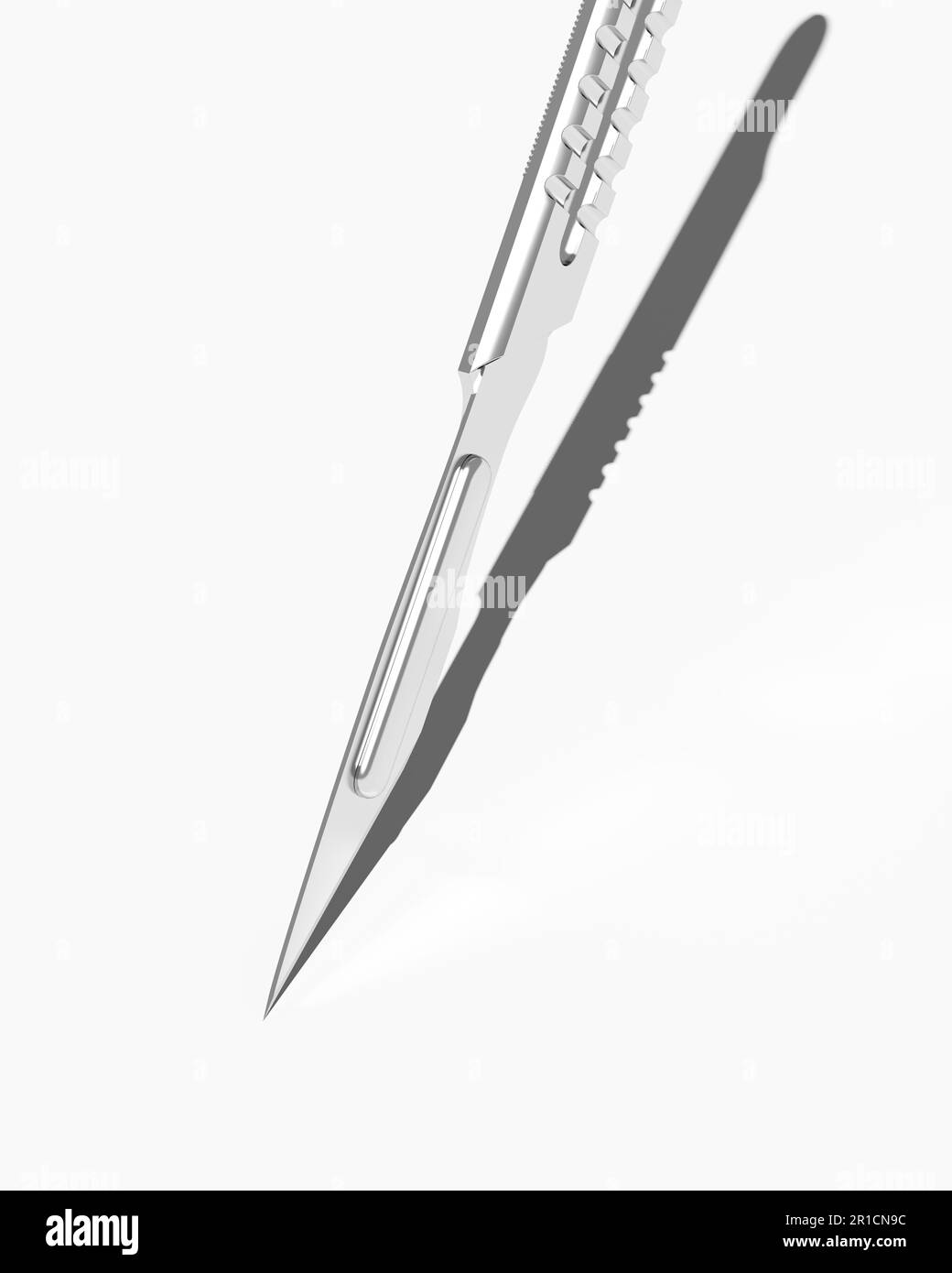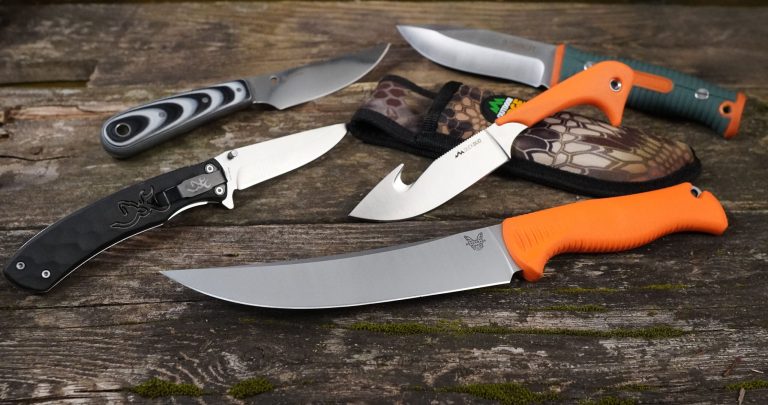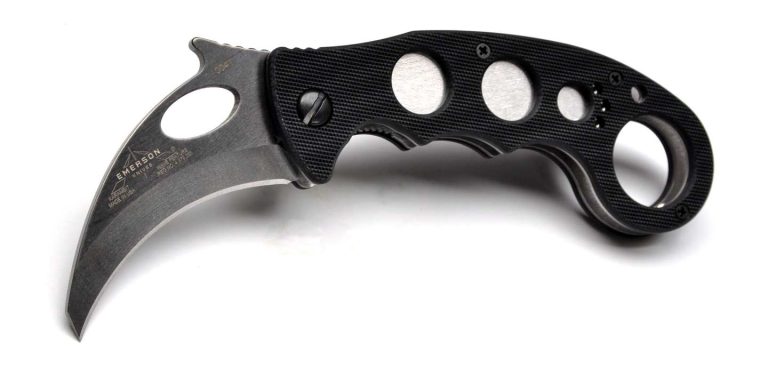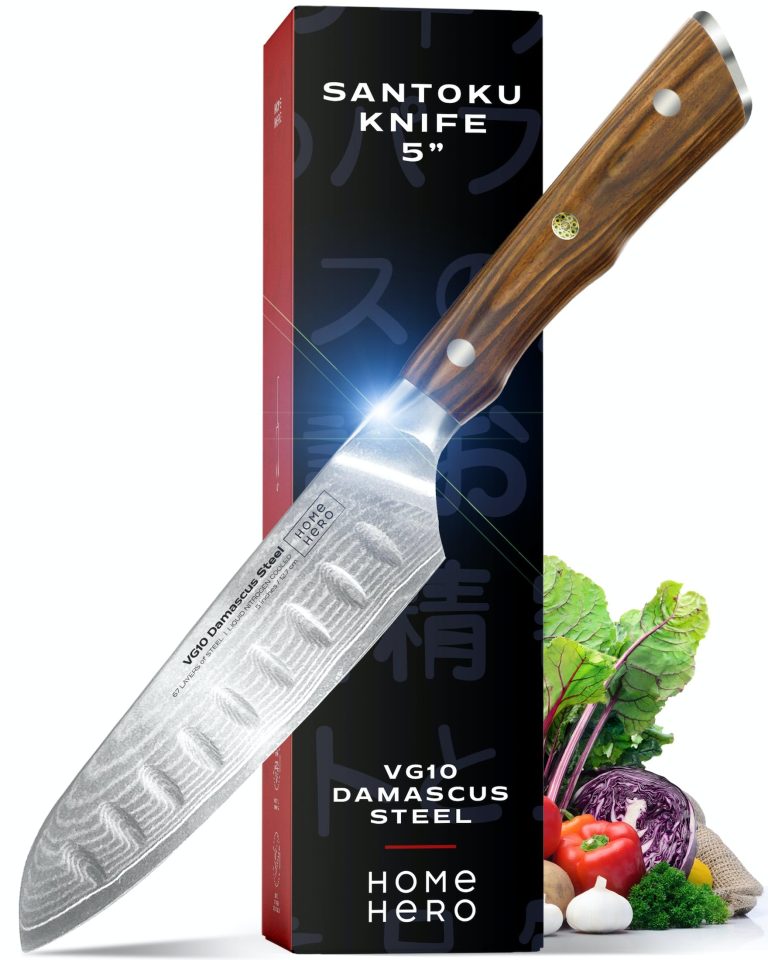Scalpels Vs. Surgical Knives: Specialized Tools for Precision
Scalpels and surgical knives are specialized tools that provide precision in medical procedures. They are essential instruments in surgeries, allowing surgeons to make precise incisions with minimal tissue damage.
These tools differ primarily in their design and intended use. Scalpels have a handle and a single small, sharp blade, while surgical knives may have interchangeable blades and a heavier handle for additional control. Both tools are crucial in various medical fields, such as general surgery, orthopedics, and dermatology, enabling healthcare professionals to perform accurate and intricate procedures.
Understanding The Role Of Scalpels In Precision Surgery
Scalpels and surgical knives play a crucial role in precision surgery, serving as specialized tools for achieving accuracy. These instruments enable surgeons to make precise incisions and carefully manipulate tissues, ensuring optimal patient outcomes.
Scalpels are an essential tool in the field of precision surgery. These specialized instruments are designed to deliver precise incisions, allowing surgeons to work with accuracy and efficiency. In this section, we will explore the characteristics and features of scalpels, the different types available, and the advancements in scalpel technology.
Characteristics And Features Of Scalpels:
- Scalpels are slender, handheld instruments with a sharp, pointed blade at one end. This blade is typically made of stainless steel, ensuring durability and resistance to corrosion.
- The blades of scalpels come in various shapes, such as straight, curved, or angled, to suit different surgical procedures and anatomical structures.
- Scalpels are lightweight, providing surgeons with ease of movement and better control during delicate surgical procedures.
- The handles of scalpels are designed for a comfortable grip, with options for a reusable metal handle or a disposable handle, which minimizes the risk of cross-contamination.
- Some advanced scalpels are equipped with a safety mechanism that retracts the blade into the handle after use, reducing the chances of accidental cuts and ensuring safe disposal.
Types Of Scalpels And Their Applications:
- # Surgical Scalpels: These are the most commonly used type of scalpel and are primarily used for making incisions during various surgical procedures.
- # Dermatological Scalpels: These specialized scalpels are designed for dermatologists and are used for skin-related procedures such as biopsies, excisions, and grafts.
- # Microsurgical Scalpels: These scalpels have extremely fine and delicate blades, allowing surgeons to perform intricate procedures under a microscope, such as ophthalmic surgeries or neurosurgeries.
- # Disposable Scalpels: These scalpels are designed for single-use, eliminating the need for sterilization and reducing the risk of infections.
- # Electric Scalpels: These scalpels use electrical energy to heat the blade, providing more precise and controlled cutting, minimizing tissue damage and bleeding.
- # Laser Scalpels: These innovative scalpels use laser technology to cut or coagulate tissues, ensuring minimal blood loss and reduced post-operative pain.
Advancements In Scalpel Technology:
- Nano-coating Technology: This technology involves the application of nano-coating on scalpel blades, enhancing their durability, sharpness, and resistance to wear.
- Electrosurgical Technology: Advancements in electrosurgical technology have led to the development of electrosurgical scalpels that utilize radiofrequency energy for precise cutting and coagulation.
- Sharpness Monitoring Systems: These systems employ sensors to monitor the sharpness of scalpel blades, alerting surgeons when it’s time for blade replacement, ensuring consistent cutting performance.
- Safety Mechanisms: Scalpels now come with improved safety mechanisms like retractable blades, reducing the risk of accidental injuries to medical professionals and patients.
- Ergonomic Designs: Scalpel handles are now designed with ergonomics in mind, allowing for reduced hand fatigue and improved control during surgical procedures.
Scalpels play a crucial role in precision surgery, offering surgeons the precision and control they need to perform intricate procedures. With advancements in technology, scalpels continue to evolve, providing better surgical outcomes and enhancing patient safety.
Exploring The Utility Of Surgical Knives In Precision Surgery
Precision surgery requires specialized tools, and surgical knives prove to be highly valuable in achieving accurate results. These knives offer superior precision and control compared to scalpels, making them an essential instrument for surgeons aiming for optimal surgical outcomes.
Precision is crucial in surgical procedures, as even the smallest incision can have a significant impact. When it comes to specialized tools for achieving accuracy, scalpels and surgical knives take center stage. In this section, we will delve into the characteristics, features, types, and advancements in surgical knives that make them indispensable in precision surgery.
Characteristics And Features Of Surgical Knives:
- Surgical knives are designed to provide exceptional precision and control during surgical procedures.
- These instruments are lightweight, allowing surgeons to maneuver them effortlessly and effectively.
- The blades of surgical knives are highly sharp, facilitating smooth and clean cuts with minimal tissue disruption.
- Some surgical knives feature retractable blades, enhancing safety and preventing accidental injuries.
- Surgical knives are usually made from high-quality stainless steel, ensuring durability and resistance to corrosion.
Types Of Surgical Knives And Their Applications:
- #1 Scalpel Blades:
- These are the most commonly used surgical blades, known for their versatility and wide range of applications.
- They are ideal for making precise incisions and excisions, as well as performing intricate dissections.
- Scalpel blades come in various shapes and sizes, such as straight, curved, and hooked, to suit different surgical needs.
- #2 Microsurgical Blades:
- Microsurgical knives are specifically designed for delicate and intricate procedures, requiring exceptional precision.
- They are commonly used in ophthalmology, neurosurgery, and plastic surgery.
- These blades are incredibly thin and sharp, allowing surgeons to work in tiny spaces without damaging surrounding tissues.
- #3 Dermatological Blades:
- Dermatological knives are primarily used in dermatology and cosmetic surgeries.
- These blades have a unique shape that enables precise removal of skin lesions and tumors.
- Dermatological blades may also be used for biopsies and other procedures involving the skin.
Advancements In Surgical Knife Technology:
- Laser Surgical Knives:
- Laser technology has revolutionized surgical knives by offering a non-contact alternative for making incisions.
- Laser knives produce focused beams of light that vaporize tissue, leading to minimal bleeding and precise cuts.
- Surgeons can control the depth and intensity of the laser, ensuring accurate outcomes and quicker healing.
- Electric Surgical Knives:
- Electric knives utilize high-frequency electrical currents to cut through tissue layers.
- These knives provide enhanced precision, reduced tissue damage, and minimized blood loss.
- Surgeons can adjust the cutting speed and power level of electric knives, allowing for control and customization.
Surgical knives play a vital role in precision surgery, delivering accuracy, control, and safety to surgeons. With their various types and advancements in technology, surgical knives continue to evolve, elevating the standards of modern medical procedures.
Comparing Scalpels And Surgical Knives: Pros And Cons
Scalpels and surgical knives are specialized tools used in precision surgeries. Scalpels offer a sharp, delicate cut, while surgical knives provide durability and versatility. Both have distinct advantages and disadvantages, making it important to choose the right tool for each surgical procedure.
Scalpels and surgical knives are specialized tools used in medical procedures that require precision and accuracy. While they serve a similar purpose, there are distinct differences between the two. In this section, we will compare scalpels and surgical knives, discussing their pros and cons in terms of precision and accuracy, ease of use and maneuverability, as well as safety and injury risk.
Precision And Accuracy: Scalpels Vs. Surgical Knives
- Scalpels:
- Sharp, fine blades that allow for precise incisions.
- Ideal for delicate and intricate procedures.
- Offer superior control and precision due to their ergonomic design.
- Can achieve clean and accurate cuts, minimizing tissue trauma.
- Surgical Knives:
- Versatile tools available in various blade shapes and sizes.
- Suitable for a wide range of surgical procedures.
- Provide excellent precision for both shallow and deep incisions.
- May require more skill to achieve the same level of accuracy as scalpels.
Scalpels and surgical knives are both capable of delivering precise and accurate cuts. However, scalpels are often preferred for procedures that demand utmost precision and intricate maneuvers, while surgical knives offer a more versatile option for different surgical needs.
Ease Of Use And Maneuverability: Scalpels Vs. Surgical Knives
- Scalpels:
- Lightweight and easy to handle.
- Ergonomically designed for enhanced maneuverability.
- Provide surgeons with excellent control and dexterity.
- Can minimize hand fatigue during long procedures.
- Surgical Knives:
- Offer a firm grip due to their sturdy handle design.
- Allow for easy manipulation and steady movement.
- May require additional force depending on the procedure.
- Slightly heavier compared to scalpels, potentially impacting ease of use.
Both scalpels and surgical knives have their advantages when it comes to ease of use and maneuverability. Scalpels excel in providing maximum control and reduced fatigue, ensuring precise movements during intricate procedures. On the other hand, surgical knives offer a sturdy grip, making them easier to handle during surgeries that require more force or depth.
Safety And Injury Risk: Scalpels Vs. Surgical Knives
- Scalpels:
- Equipped with retractable blades or safety features to reduce injury risk.
- Designed to minimize accidental cuts when not in use.
- Regular blade changes recommended to maintain optimal sharpness.
- Requires thorough training to safely handle and prevent accidents.
- Surgical Knives:
- Rigid blades may pose a higher risk of accidental cuts.
- Safety measures might be less prevalent with surgical knives, increasing the risk of injuries.
- Training and experience are crucial to ensure safe usage.
- Proper handling techniques are essential to avoid potential harm.
Safety considerations are vital when choosing between scalpels and surgical knives. Scalpels generally incorporate safety features to minimize injury risks, while surgical knives require additional caution and skill during handling. Both tools demand proper training and expertise to ensure the safety of surgeons and patients alike.
Real-Life Applications And Case Studies
Scalpels and surgical knives are specialized tools used in real-life applications to achieve precise surgical procedures. Through case studies, these instruments have demonstrated their efficacy in delivering accurate incisions and enhancing surgical outcomes. Their unique features and design make them indispensable in the field of surgery.
Scalpels and surgical knives are essential tools in precision surgery, each serving a specific purpose for the utmost accuracy. In this section, we will delve into real-life applications and case studies that showcase the effectiveness of these specialized instruments. From successful surgeries to best practices, let’s explore the unique capabilities of scalpels and surgical knives.
Scalpels In Use: Case Studies And Success Stories
- Dr. Smith, a renowned neurosurgeon, utilized a scalpel during a delicate brain surgery to remove a tumor. The sharp, thin blade allowed for precise incisions, minimizing damage to surrounding tissue. The patient experienced a successful outcome and a swift recovery.
- In another case, Dr. Johnson performed a complex cardiovascular procedure using a scalpel. The instrument’s sharpness enabled accurate and controlled cuts, working alongside other tools seamlessly. This method facilitated optimal blood flow and ultimately saved the patient’s life.
Surgical Knives In Use: Case Studies And Success Stories
- Dr. Lee, a highly skilled plastic surgeon, utilized a surgical knife to perform a precise facial reconstruction. With its sturdy build and sharp edge, the knife allowed for meticulous shaping and contouring of the patient’s features. The outcome was a natural-looking result that boosted the patient’s confidence.
- In a challenging orthopedic surgery, Dr. Martinez relied on a surgical knife to extract a bone fragment from a patient’s joint. The knife’s accuracy and maneuverability granted the surgeon the ability to navigate delicate structures, leading to a successful procedure and improved mobility for the patient.
Best Practices And Considerations For Precision Surgery
To ensure optimal results when using scalpels and surgical knives in precision surgery, certain best practices and considerations should be kept in mind:
- Thorough training and expertise in handling these tools are crucial to avoid accidents and optimize precision.
- Maintaining the sharpness of the blades is essential, as a dull edge can compromise the accuracy of incisions.
- Proper sterilization techniques should be implemented to reduce the risk of infection and promote patient safety.
- Careful consideration of patient-specific factors, such as anatomy and medical history, is necessary to tailor the choice and usage of scalpels or surgical knives accordingly.
- Collaboration and clear communication between surgeons and their interdisciplinary teams contribute to successful surgical outcomes. Regular discussions and sharing of experiences can enhance knowledge and skill in utilizing these specialized tools effectively.
Real-life case studies and success stories demonstrate the valuable role scalpels and surgical knives play in precision surgeries. Choosing the right tool for each procedure and applying best practices ensure optimal results and patient satisfaction. By understanding their capabilities and limitations, healthcare professionals can further refine their skills and provide the highest standard of care.
Future Trends And Innovations In Precision Surgery Tools
Precision surgery tools are witnessing future trends and innovations. This includes the comparison of scalpels and surgical knives, specialized tools that play a crucial role in achieving precision during surgical procedures. Stay updated with the latest advancements in this field.
Scalpels and surgical knives have long been indispensable tools in the field of precision surgery. As technology continues to advance, we can expect exciting developments in these specialized instruments. In this section, we will explore emerging trends and innovations in precision surgery tools, focusing on scalpels, surgical knives, and the rise of robotic-assisted precision surgery.
Emerging Technologies And Techniques In Scalpels:
- Laser Scalpels: These innovative tools utilize laser technology to cut with extreme precision, minimizing bleeding and tissue damage.
- Ultrasonic Scalpels: Using ultrasonic vibrations, these scalpels can make precise incisions while simultaneously coagulating blood vessels, resulting in reduced bleeding.
- Electrical Scalpels: These scalpels use electrical currents to cut through tissue with enhanced precision and control.
- Plasma Scalpels: By releasing a jet of plasma, these scalpels vaporize tissue, leading to minimal damage to surrounding areas.
Future Developments In Surgical Knives:
- Nanoengineered Surgical Knives: Researchers are exploring the use of nanotechnology to create surgical knives with ultra-sharp blades, allowing for even finer incisions.
- Biodegradable Surgical Knives: As sustainability becomes a key focus in the medical field, the development of biodegradable surgical knives could help reduce waste and the risk of infection.
- Smart Surgical Knives: Integrating sensors and feedback mechanisms, these surgical knives can provide real-time information about tissue characteristics, aiding surgeons in making precise cuts.
The Rise Of Robotic-Assisted Precision Surgery:
- Robotic Surgical Systems: These sophisticated systems enable surgeons to perform complex procedures with enhanced accuracy and precision. They can also provide 3D visualization and magnification, allowing for more precise incisions.
- Teleoperated Surgical Robots: With advancements in communication technology, these robots enable surgeons to conduct operations remotely, offering their expertise across geographical distances.
- Artificial Intelligence-guided Robotic Surgery: By utilizing machine learning and artificial intelligence, robotic systems can analyze data in real-time, assisting surgeons in making more informed decisions during surgery.
Exciting advancements lie ahead in the field of precision surgery tools. The integration of emerging technologies, the development of future surgical knives, and the rise of robotic-assisted precision surgery are all contributing to improved outcomes for patients and increased precision for surgeons.
The future of precision surgery is a promising one, where innovation and precision go hand in hand.

Credit: www.alamy.com
Frequently Asked Questions Of Scalpels Vs. Surgical Knives: Specialized Tools For Precision
What Is The Difference Between A Surgical Knife And A Scalpel?
A surgical knife is the same as a scalpel, used in surgeries to cut tissues.
Are Scalpels Sharper Than Knives?
Scalpels are sharper than knives, making them more precise for medical procedures.
What Is The Precision Of A Surgeon’S Knife?
A surgeon’s knife has high precision in cutting due to its advanced design and technology.
Is Anything Sharper Than A Scalpel?
No, a scalpel is one of the sharpest tools used in surgical procedures.
Conclusion
Overall, both scalpels and surgical knives are specialized tools that play a vital role in achieving precision during medical procedures. While scalpels offer a versatile and precise cutting edge, surgical knives excel in durability and strength. Understanding the unique features and benefits of each instrument is crucial for healthcare professionals to make informed decisions based on the specific needs of their patients.
When it comes to surgical precision, scalpels are the go-to tool due to their delicate and sharp blades, allowing for precise and controlled incisions. On the other hand, surgical knives provide durability and strength, making them ideal for tough tissue and bone cutting.
By utilizing scalpels or surgical knives appropriately, surgeons can ensure improved patient outcomes and minimize the risk of complications. The key lies in selecting the right tool for the job based on the specific requirements of the procedure. Scalpels and surgical knives are essential instruments for achieving precision in medical procedures.
Healthcare professionals must understand the unique features and benefits of each tool to select the appropriate instrument that aligns with the needs of their patients. With this knowledge, surgeons can enhance the accuracy and success of their clinical interventions.







Scalpels information so hard to find.
Thank you for this helpful article